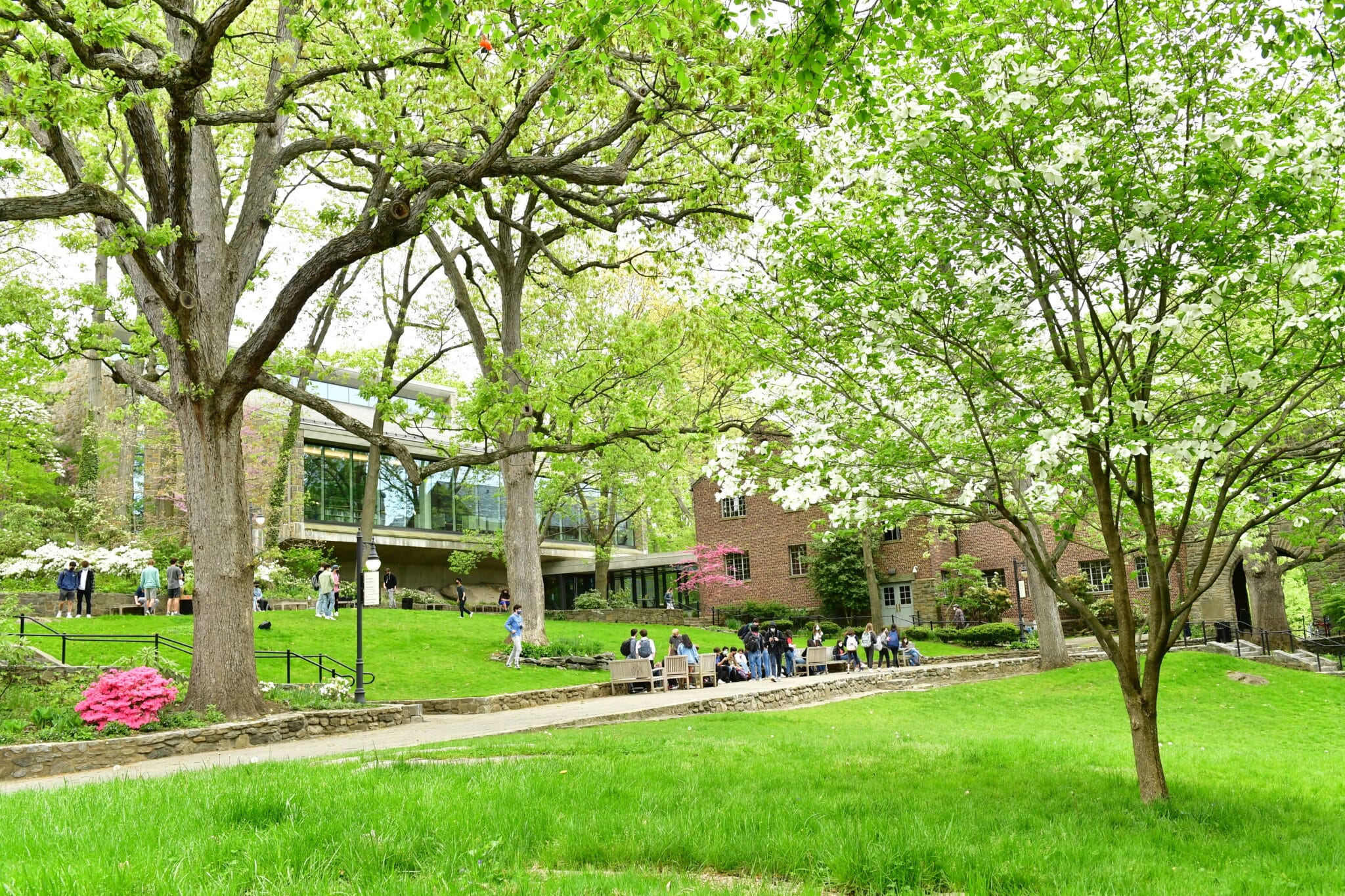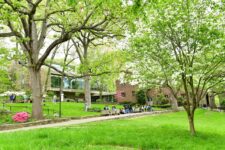Ben Tumin ’08 attended Fieldston for 13 years, finding a love of history during his time at the School. That passion for how the past shapes our present and informs our future motivated Tumin to study history at Pomona College. Now, he hosts a comedy web series, “Skipped History,” in which he uses humor to engage people on questions about overlooked parts of the past.

What brought you to Fieldston?
My maternal grandparents came to the United States after fleeing Germany to escape the Holocaust. As they worked to assimilate into the U.S., they joined the Ethical Society, which is where they met. My mother and her sisters attended Ethical Sunday School at the Ethical Society of Northern Westchester, which my grandparents founded, and when it was time for my sister and I to attend school, my grandfather was adamant that we attend ECFS. The rest, as they say, is history.
How do you see the ethical education you received at Fieldston impacting you today?
The guiding motivation behind “Skipped History” is an effort to get to the bottom of how society came to be what it is today — including the flaws that we often overlook — and a desire to not repeat the wrongs of the past. That ties back to the experiences of my grandparents, but also to the many years I spent in ethics classes at Fieldston. After 13 years of studying ethics, I may not remember every single lesson, but I know that they informed my eagerness to get to the bottom of what’s wrong in U.S. society and how to reimagine it so we can make it better.
Who was a favorite teacher or what was a lesson from Fieldston that you’ve carried with you?
I can vividly remember loving my history classes at Fieldston. I’m still in touch with some of my teachers, like Bob Montera and Nancy Banks. When I went to college, I didn’t immediately know what I wanted to major in, but I gravitated toward studying history. That pull to dig into the past was inspired by Mr. Montera and Ms. Banks as well as so many other teachers. Their love of history made me want to learn more.
What advice would you give to current Form VI students after they leave Fieldston?
My first piece of advice is to not listen to any advice that comes from me! My second piece of advice — with the disclaimer out of the way — is to take classes that pique your interests and move you. You may not always know what you want to major in or what you’re going to do, but if you follow your interests and passions, things will evolve from there.
Why did you choose a comedy web series to share your interest in history?
Historians spend huge chunks of their lives reading and studying horrible moments in the past, but outside of academia, history is, to generalize, often watered down and made uninteresting and unrepresentative of huge swaths of the population. Myths are perpetuated because of how they maintain the status quo, and teaching history in a way that people don’t enjoy is a way to keep people disengaged from the reality of our past. For me, the question is not whether history is interesting or not; it’s how to make it interesting with the way you present it. When you use comedy to teach difficult parts of history, you can inject levity without taking things lightly. You’re able to reach people who may not have found a more traditional history class engaging or relevant.
What is your favorite Fieldston memory?
There are so many good memories! It’s hard to choose just one, but I do remember Mr. Montera, in middle school, retelling “The Odyssey” and “The Iliad.” He would take the last part of class and tell us stories from those books. I had no idea that school could be like that, and I loved it. Another great memory from Mr. Montera’s class is when I reenacted the 1805 Battle of Trafalgar. I brought in big plastic tubs, filled them with water, and recreated the battle with a set of wooden boats. I narrated the events of the battle, putting the boats in proper formation, and lit them on fire to show which ones were sinking. It had the intended dramatic effect, although the historical accuracy was questionable.

